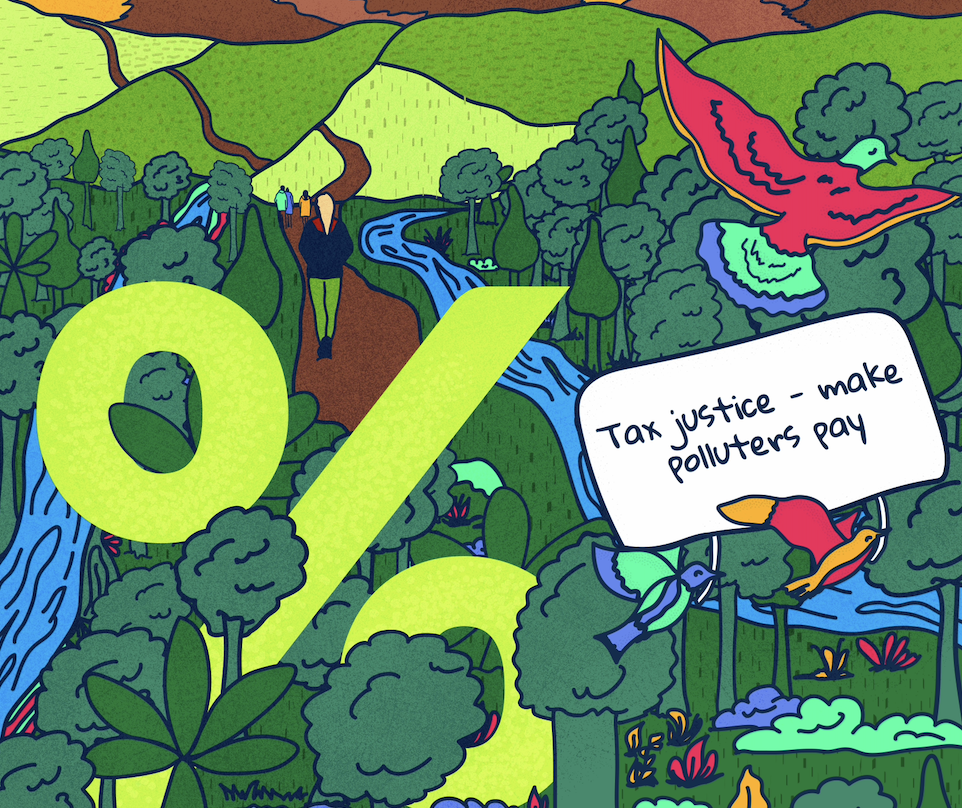Against the backdrop of rising inequalities and the accelerating climate and environmental crisis, this paper, by Eurodad and the Global Alliance for Tax Justice (GATJ) proposes additional taxes – or surtaxes – on the profits of the fossil fuel industry.
This paper finds that if a 20 per cent surtax had been applied on the global profits of the world’s 100 biggest oil and gas companies since the adoption of the Paris Agreement, an accumulated US$1.08 trillion of additional tax revenues could have been collected. While mainstream environmental taxation policy, such as carbon pricing, often carries a high risk of regressivity, directly or indirectly placing disproportionate burdens on consumers and the poorest, taxing the profits of polluting companies is a progressive, supply-side strategy that aligns economic responsibility with environmental harm.
Key recommendations:
- As a part of the UN Framework Convention on International Tax Cooperation, governments should introduce a polluter pays surtax applied to the global profits of fossil fuel companies. This report illustrates a surtax of 20 per cent, which – if it had been levied in the fiscal years 2022, 2023 and 2024 and applied on the world’s 100 biggest oil and gas companies – would have generated an estimated US$236 billion, US$184 billion and US$147 billion respectively. If the 20 per cent surtax had been applied since the adoption of the Paris Agreement in 2015, an accumulated US$1.08 trillion of additional tax revenues could have been collected. These revenues should form additional contributions, complementing the currently highly inadequate international climate finance commitments. This report also argues that in line with the international objective to transition away from fossil fuels and accelerate action, the global tax should be gradually increased over time, and set to reach 100 per cent by 2050.
- While the international rules are being negotiated at the UN level, governments around the world should immediately apply profit surtaxes on fossil fuel companies taxable in their own country. These taxes should be designed to co-exist with the global-level surtax, once this has been introduced.
- At the regional level, governments could determine a minimum surtax rate and coordinate its implementation. For the EU, that means continuing its ‘EU solidarity contribution’ with a minimum tax rate of 33 per cent and a modified tax design, while integrating provisions for the future global-level surtax.
